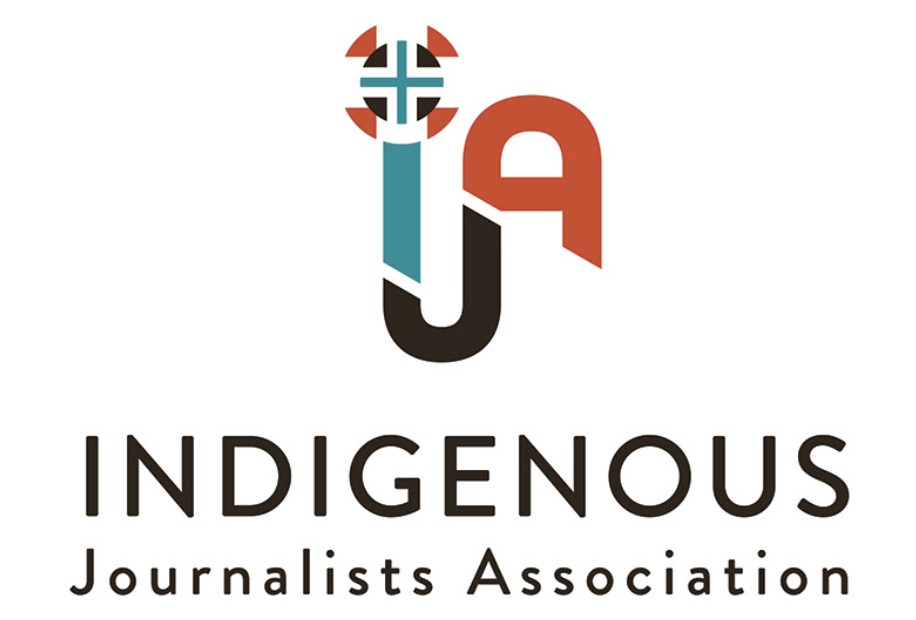
- Details
- By Native News Online Staff
Through a name-change vote held this past week at its annual conference in Winnipeg, Canada, the National American Journalists Association (NAJA) is now the Indigenous Journalists Association (IJA). The vote was 89 to 55 -- or 62 percent of the vote.
This transition was marked by the introduction of the new name and logo at the NAJA Membership Luncheon.
IJA serves more than 850 members, including media professionals working in Indigenous, freelance, independent and mainstream news outlets, as well as academia and students covering Indigenous peoples and communities.
Graham Lee Brewer (Cherokee Nation), president of IJA, expressed his enthusiasm for the name change, emphasizing the empowering movement of Indigenous journalists worldwide who are taking their rightful place as storytellers of their own narratives.
 Make A Donation Here
Make A Donation Here
“It's so inspiring to see Indigenous journalists around the world asserting themselves in newsrooms and taking their place as the rightful storytellers of their own narratives. It's long overdue, and we're so proud and excited to be a part of that movement,”Brewer said. “Connecting with our brothers and sisters across the globe, from Canada to New Zealand, has made it clear that as Indigenous peoples the struggles we face in this industry are universal.”
The organization was established forty years ago in 1983 when a gathering of Native American journalists led to the formation of the Native American Press Association. In 1990, the association underwent a name change to NAJA, a move aimed at extending support for Native voices across all media platforms and ensuring accurate representation of Native communities through contextual reporting.
Despite the challenges posed by colonial influences on history and narratives, Brewer highlighted the commitment of Indigenous journalists to represent their communities authentically. He pointed out the contemporary opportunity to connect and establish meaningful relationships among Indigenous journalists globally, fostering knowledge-sharing and mutual support.
IJA, in accordance with its principle of recognizing Indigenous peoples as unique groups with distinct traditions and cultures, endeavors to unite its members through journalism programs that emphasize diversity and address threats to free press, speech, and expression. The organization is dedicated to boosting the presence of Indigenous journalists in mainstream media and encourages both Indigenous and mainstream media to uphold the highest standards of professionalism, ethics, and responsibility.
As part of the new developments, the board of directors saw the election of Sunnie Clahchischiligi (Diné) and Joseph Lee (Wampanoag Tribe of Gay Head), while Jourdan Bennett-Begaye (Diné) was reelected. Several existing directors, including Angel Ellis (Muscogee Creek Nation), Savannah Maher (Mashpee Wampanoag), Angel Moore (Peguis First Nation), Shondiin Silversmith (Diné), Jodi Rave Spotted Bear (Mandan, Hidatsa and Arikara Nation / Lakota), and Christine Trudeau (Prairie Band Potawatomi Nation), will continue to serve for their respective terms.
The Executive Director of IJA, Rebecca Landsberry-Baker, mentioned that the organization has been preparing for this rebranding for a year, which includes the development of a new website. She expressed excitement about the expansion of support for members and the communities they serve over the next chapter of the newly named Indigenous Journalists Association's journey.
More Stories Like This
Native News Weekly (August 25, 2024): D.C. BriefsUS Presidents in Their Own Words Concerning American Indians
Next on Native Bidaské: Julian Brave NoiseCat on the Lumbee Nation’s 140-Year Fight for Federal Recognition
Hackers Compromise Native News Online Facebook Page
‘His stories can no longer be told.’ | Woman Pleads Guilty to 2016 Murder of Indigenous Master Woodcarver
Help us defend tribal sovereignty.
At Native News Online, our mission is rooted in telling the stories that strengthen sovereignty and uplift Indigenous voices — not just at year’s end, but every single day.
Because of your generosity last year, we were able to keep our reporters on the ground in tribal communities, at national gatherings and in the halls of Congress — covering the issues that matter most to Indian Country: sovereignty, culture, education, health and economic opportunity.
That support sustained us through a tough year in 2025. Now, as we look to the year ahead, we need your help right now to ensure warrior journalism remains strong — reporting that defends tribal sovereignty, amplifies Native truth, and holds power accountable.
 The stakes couldn't be higher. Your support keeps Native voices heard, Native stories told and Native sovereignty defended.
The stakes couldn't be higher. Your support keeps Native voices heard, Native stories told and Native sovereignty defended.
Stand with Warrior Journalism today.
Levi Rickert (Potawatomi), Editor & Publisher

